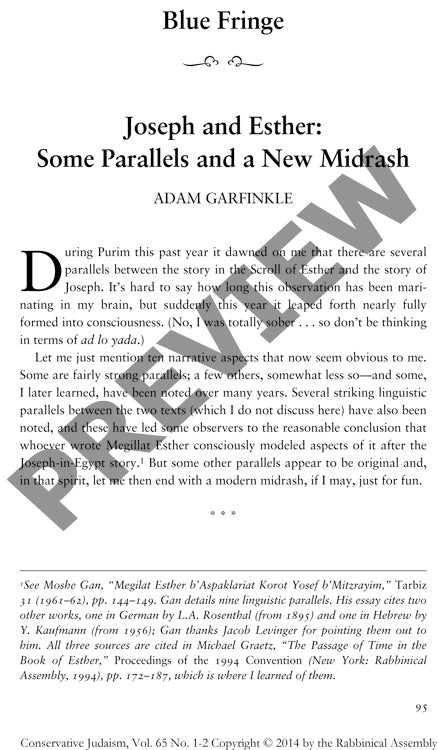Blue Fringe Joseph and Esther Some Parallels
Couldn't load pickup availability
Biblical narratives of Joseph and Esther share a remarkable set of previously unrecognized literary and theological parallels that suggest intentional authorial connection. Through comparative textual analysis of Hebrew sources, midrashic literature, and contemporary scholarship, ten key parallels emerge between these diaspora tales - from the protagonists' involuntary exile and physical beauty to their strategic concealment and revelation of identity. Both characters are "sold" into slavery, acquire sensitive information leading to executions, and ultimately choose to remain in exile rather than return to Israel. Significantly, divine providence in both narratives operates through subtle event sequencing rather than overt miracles, with neither protagonist receiving direct divine communication. Close reading of linguistic patterns reveals that Megillat Esther's author likely modeled aspects of the narrative after the Joseph story to create deliberate thematic resonances. A modern midrash connecting Rachel's stolen teraphim to Joseph's goblet and Esther's possessions further illuminates these parallels, highlighting the non-cyclical, progressive nature of biblical history and divine providence in diaspora contexts. This analysis advances our understanding of intertextual relationships within biblical literature and demonstrates how narrative structure conveys theological meaning about divine action in history.

More Information
-
Physical Description
-
Publication Information
Published 2013-2014
ISBN
-
Publication Credits

